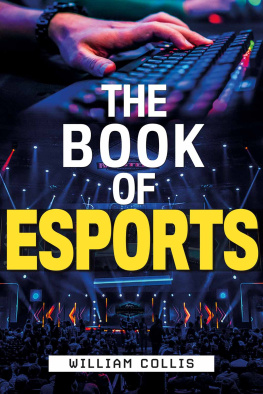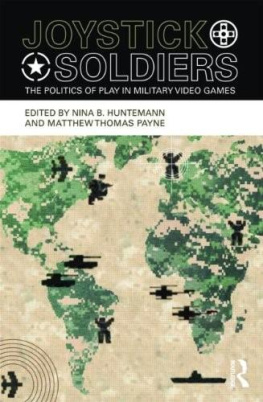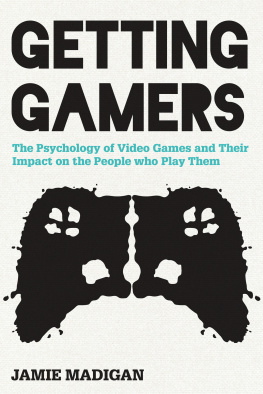Hooked on Games: The Lure and Cost of Video Game and Internet Addiction
By Andrew Doan, MD, PhD with Brooke Strickland
Foreword by Douglas Gentile, PhD
Edited by Louise Damberg and Marie Hunt
Copyright 2012 Andrew Doan, MD, PhD , and Brooke Strickland
The views expressed in this book are those of the author and do not necessarily reflect the official policy or position of the Department of the Navy, Department of Defense, or the United States Government.
All the stories of video game addiction and excessive play are true. Most of the names of people discussed in this book have been changed to protect their identities and privacy. Descriptions of video game play and scenarios are based on real video games from the authors experiences.
NO MEDICAL ADVICE IS GIVEN NOR IS ANY PROVIDED IN THIS BOOK . SUCH INFORMATION WHICH MAY BE MEDICAL IN NATURE IS INFORMATION ONLY FOR THE USE OF LICENSED AND EXPERIENCED MEDICAL PRACTITIONERS. A READER INTERESTED IN MEDICAL ADVICE OR TREATMENT SHOULD CONSULT A MEDICAL PRACTITIONER WITH AN APPROPRIATE SPECIALTY WHO IS P ROPERLY LICENSED IN THE READERS JURISDICTION.
Published and distributed by F.E.P. International, Inc.
www.fepint.org
www.hooked-on-games. c om
All rights reserved. No part of this book may be used or reproduced in any manner whatsoever without written permission except for brief quotations embodied in critical articles and reviews.
Printed in the United States of America
For information write F.E.P. International, Inc. 941 25th Avenue, #101 Coralville, IA 52241
ISBN 978-1-935576-02-0
Typesetting and Cover Design by Dani el Hunt
I appreciate you taking the time to read my story. If you find my book helpful, please pass it on to someone else who may benefit from my message. Please support my mission in educating the world about the lure and dangers of video game and Internet addiction by sharing my book on Facebook, Twitter, and providing a book review on Amazon.com and other online retailers.
Andrew Doan, MD, PhD
www.andrew-doan.com
www.hooked-on-games.com
Acknowledgement s
I thank my gorgeous wife, Julie, who demonstrated the patience of Job and prayed for me when all hope appeared lost. I thank my church home, Celebrate Recovery, and the Mens Group at Rancho Community Church for their friendships and guidance. Special thanks goes out to Jesus Christ, my Lord and Savior. Without Gods intervention and love, I would not be here today to share my story.
Foreword
People have been talking about video games a nd the Internet being addictive ever since games a nd computers entered the home. As a gamer and Internet user, I reco gnize the temptation to call them addictive, but , as a scie ntist, I am deeply skeptical. Although we use the term addiction colloquially in the culture to describe anything with which we spend a lot of time , this is n ot the proper way to describe video gaming, either medically or psychologically.
A ddictions (and indeed, most mental health disorders) are defined by how much they disrupt ones life, not by how much it is used. Moreover, to be classified as clinically significant , it requires dysfunct ion in multiple areas of life. Because time is limited, we always sacrifice some activit ies for others that we prefer. Therefore, if you love gaming and give up some time with your family to game, that alone does not indicate an addiction. In fact, that make s it normal. But if your famil y and friendships are suffering, you are doing poorly in school, or your work life is suffer ing, then the gaming has caused you to be dysfunctional because it is clearly related to damaging multiple important areas of your life.
I began studying video game addiction using this much more conservati ve clinical approach to define the issue. I was a true scientific skeptic, and I honestly believed that I would not find any people who fit this more clinical definition of addiction. But the data do not lie, and it turned out that a surprising number of gamers admitted damage to multiple areas of their lives. In one national study o f over 1,100 8 to 18 -year-olds in the United States, we found that 8.5 percent would classify as pathological gamers by th is definition. Although this could be considered a somewhat small percentage, the true nature of the problem becomes clear when one considers this percentage in population terms. There are abo ut forty million children between eight and eighteen in the U nited S tates. Approximatel y 90 percent of them play video games. If 8.5 percent of them are pathological, thats over 3 million children seriously damaging multiple areas of their lives because of the ir gaming habits! Thats over 3 million children who probably should get some help, but most wont because there is no medical diagnosis for the pathological use of technology. Once there is, it will be similar to the app roach focusing on dysfunction. The medical diagnostic definition matters because, until there is one, insurance companies will not pay for treatment.
In addition, many therapists are not yet convinced that it is a real problem. This is similar to where we were with alcoholism fifty years ago. Studies were beginning to come out suggesting that it looked like a medical disease model would fit; there were identifiable risk factors, and it could be treated, but most people did not simply get better without help. The culture, however, was not able to accept this at the time. Instead, the culture considered it to be a moral fail ing alcoholics just werent strong enough. It took thirty years of research to demonstrate that alcoholism should be taken seriously by the medical community. I believe we are at a similar point wit h the pathological use of technology.
Studies are beginning to show that it looks like there are identifiable risk factors ; for example , it does not go away on its own easily, and it can be treated. I n one study of over 3 ,000 children, the researchers found that they could predict which children would become pathological gamers by knowing if they had poor impulse control, poor social relationships, a nd spent a lot of time gaming ( Choo H, Gentile DA, Sim T, Li D, Khoo A, Liau AK. Pathological video-gaming among Singaporean youth. Ann Acad Med S ingapore. 2010 Nov;39(11):822-9; Gentile DA, Choo H, Liau A, Sim T, Li D, Fung D, Khoo A. Pathological video game use among youths: a two-year longitudinal study. Pediatrics. 2011 Feb;1 27(2):e319-29. Epub 2011 Jan 17) .
Once they became pathological gamers, they became more depressed, anxious, socially phobic, and less productive in school. If they stopped being addicted, their depression , anxiety, and social phobia s lifted, and their grades improved. It appeared that the gaming wa s an important part of the ir overall mental health.
Yet, the broader culture is still resistant to this message, and they consider gaming addiction to be a moral failing; only this time , the moral failing is usually assumed to be that of the parents, who are expected to be able to control the behavior of their children . Certainly more research is needed before the medical community feels that we understand the problem enough to come to an agreed -upon definition. Nonetheless, I hope it does not take another thirty years of research before we begi n to take this issue seriously.
Douglas A. Gentile, PhD
www.douglasgentile.com
Introduction: Hooked o n Games
Shawn Woolley had many friends and an active social life. Youd often find Shawn trying to make people laugh . H e enjoyed interacting with people , and he grew up as a happy and well-adjusted child. As he approached ear ly adulthood, he purchased a car, move d out into his own apartment, and was promoted to assistant manager at his workplace.
Bu t something quickly changed. Shawn discovered and began to engross himself in the fantasy world of the role-playing video game EverQuest . According to his mother, Liz, his personality started changing because of his devotion to and significant obsession with the game. He started playing for hours on end , and some nights, he wouldnt sleep; he woul d literally stay up all night, immersing himself in the world of EverQuest . Fully absorbed in this game, Shawns personal life began to deteriorate . He lost friendships , his job, his car, and his apartment . He eventually lost h is Internet connection his tie to the fantasy world. Without access to the Internet, Shawn became desperate.
Next page

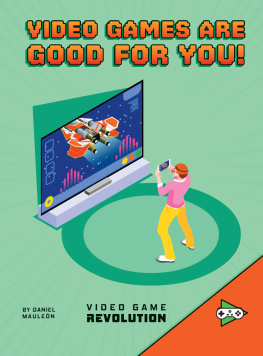
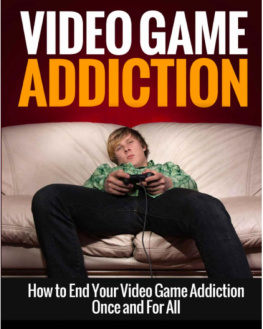
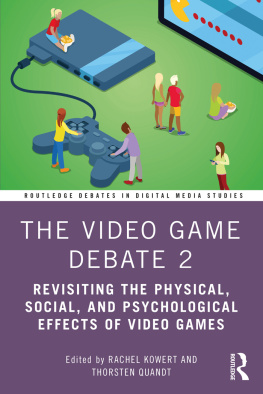

![Mark J. P. Wolf (editor) - Encyclopedia of Video Games: The Culture, Technology, and Art of Gaming [3 volumes]](/uploads/posts/book/279290/thumbs/mark-j-p-wolf-editor-encyclopedia-of-video.jpg)
